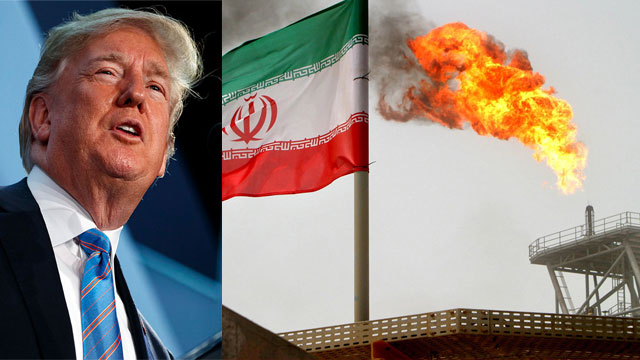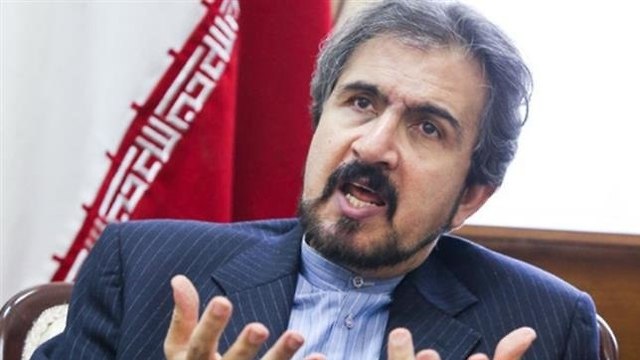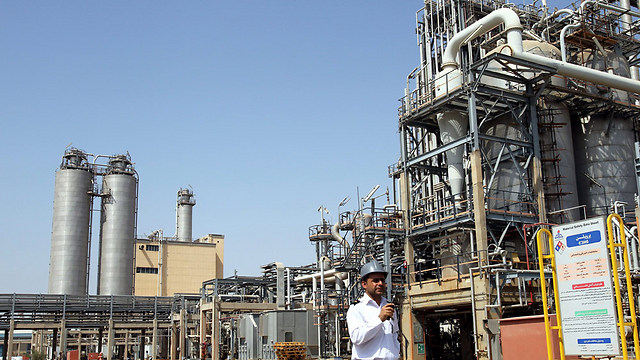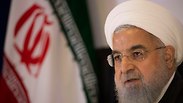
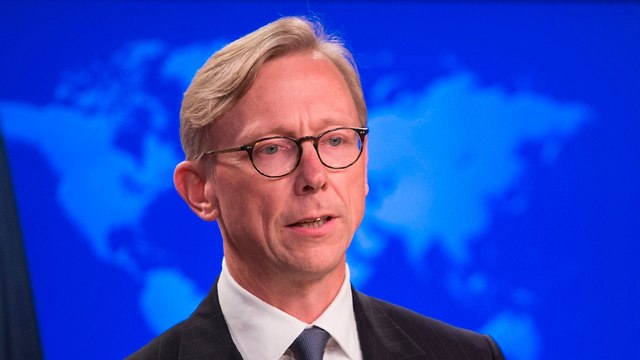
US envoy: Market can cope with push for zero Iranian oil sales
Brian Hook believes that a balanced market can handle full ban on Iranian oil if there will be a coordination with other major importers; Iranian reformist newspapers: US sanctions violate human rights due to their incompatibility with the Charter of the United Nations.
The United States still aims to cut Iran's oil sales to zero and does not expect restored oil sanctions against Tehran to have a negative impact on a market that is well-supplied and balanced, a senior US official said on Monday.
US special envoy for Iran Brian Hook was talking to reporters after a visit to India, a major importer of Iranian oil, and talks with officials from France, Britain and Germany before the start of a new round of US sanctions on November 4 targeting Iran's energy sector and financial transactions.
The three European countries have been trying to save the 2015 nuclear deal between Tehran and multiple global powers since US President Donald Trump announced in May that the United States would withdraw from the pact.
In a conference call from Luxembourg, where Hook was meeting European officials, he said Iran used oil revenue to support and fund terrorist proxies throughout the Middle East, including in the proliferation of ballistic missiles.
The US goal is for countries to cut imports of Iranian oil to zero as quickly as possible, Hook said.
"We are working with countries that are reducing their imports to ensure that this happens," he said.
Hook declined to answer questions on possible waivers on sanctions for countries that are reducing their imports or whether the United States would target the SWIFT international payments messaging system.
But he said Washington was confident that energy markets would remain stable.
"We are seeing a well-supplied and balanced oil market right now. We should focus on these fundamentals and not be distracted by the emotional and unbalanced claims coming from Tehran."
Iran, the third-largest producer in the Organization of the Petroleum Exporting Countries, has said its oil exports cannot be halted because of high demand in the market.
"Stopping Iran’s oil export is impractical," Iranian Foreign Ministry spokesman Bahram Qasemi told a weekly news conference on Monday. "Certainly, America will not achieve its goal ... our oil exports will continue."
Iran pumped 3.45 million barrels per day in September, OPEC said last week, down 150,000 bpd from August. Production dropped below 2.7 million bpd under previous sanctions that were lifted following the 2015 nuclear deal.
Washington, meanwhile, plans to continue coordinating with oil producers and maintaining US supply.
"Our crude oil production increased by 1.65 million barrels in August compared to one year ago and that is expected to continue rising by as much as 1 million barrels a day within the next year," Hook said.
Hook also said European efforts to create a special-purpose vehicle (SPV) for trade, including oil, with Tehran by November would struggle to gain traction.
"That vehicle sends the wrong message at the wrong time," he said. "From what we've seen this SPV seems to want to create supply but we don't see much demand for it when you look at well over 100 companies that have already made clear they are leaving."
Iranian papers: US sanctions violate Iranian human rights
Several Iranian reformist newspapers on Monday published a rare joint editorial criticizing US sanctions against the country and asking "world journalists" to defend Iranian human rights.
The editorial was published in both Farsi and English on Monday in at least eight state-owned and pro-reform dailies. It said the US has "lied" about the purpose of sanctions, which target the needs of ordinary people and curtail access to medical supplies and equipment.
The joint editorial said that "trade restrictions, blockades, embargoes, freezing of assets and other economic sanctions are incompatible with the Charter of the United Nations."
It called the US pullout from the 2015 nuclear deal with Iran "an undiplomatic and immoral" policy. The agreement with world powers had established a protocol to limit Iran's nuclear program in return for sanctions relief.
Iran is negotiating with European trading partners to try and find a way to circumvent US sanctions and remain within the nuclear deal. The editorial is seen as part of efforts by Iranian reformists to address international public opinion ahead of the implementation of a new round of US sanctions targeting oil in early November.
Hard-liners opposed to rapprochement with the West were always skeptical of the nuclear deal, and have viewed the withdrawal as proof of their longstanding belief that the US cannot be trusted.
On Sunday, Iran's President Hassan Rouhani, a relative moderate, tried to downplay the upcoming US sanctions targeting the country's vital oil and gas sector.
Also on Monday, Ghasemi said that Tehran received a US note confirming its withdrawal from a decades-old treaty affirming friendly relations between the two countries.
The Trump administration announced it would terminating the 1955 amity treaty earlier this month in response to a UN court order that the US lift sanctions on Iran. Secretary of State Mike Pompeo said withdrawing from the treaty was long overdue and followed Iran "groundlessly" bringing a complaint with the International Court of Justice challenging US sanctions on the basis that they were a violation of the pact.
The largely symbolic gesture highlighted deteriorating relations between Washington and Tehran.















